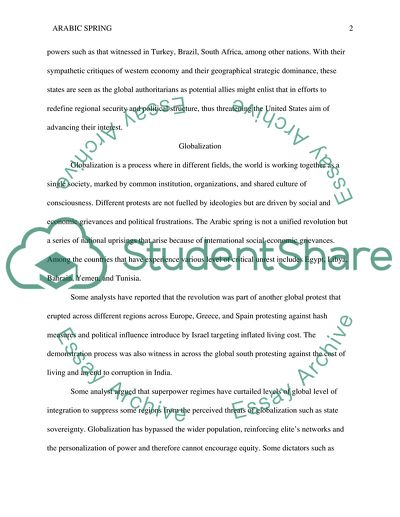Cite this document
(“Arabic spring Essay Example | Topics and Well Written Essays - 1500 words”, n.d.)
Retrieved from https://studentshare.org/social-science/1658623-arabic-spring
Retrieved from https://studentshare.org/social-science/1658623-arabic-spring
(Arabic Spring Essay Example | Topics and Well Written Essays - 1500 Words)
https://studentshare.org/social-science/1658623-arabic-spring.
https://studentshare.org/social-science/1658623-arabic-spring.
“Arabic Spring Essay Example | Topics and Well Written Essays - 1500 Words”, n.d. https://studentshare.org/social-science/1658623-arabic-spring.


